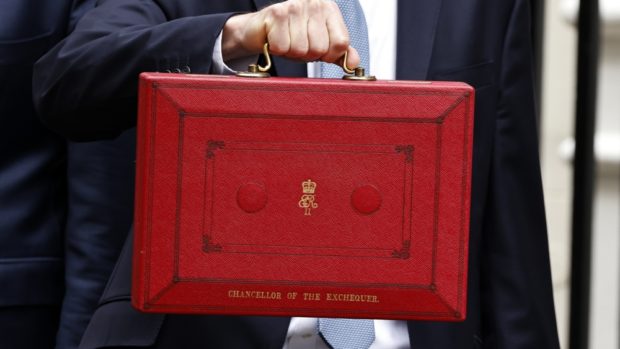Britain’s small business owners believe over a third (36 per cent) of their revenue is obtained from thinking outside the box. Research from PayPal’s Business of Change Rethink & Grow report, reveals that 4 in 10 (43 per cent) SME owners think adaptability – the trying and testing of new processes and ways to do business – is critical to delivering success.
Surveying 500 small business owners across the UK, PayPal’s report, which aims to encourage SMEs to rethink the potential of their business, reveals that over three quarters (77 per cent) of business owners believe it is important for SMEs to adapt their operations to remain competitive during changing and challenging market conditions.
However, almost half (47 per cent) of SME owners admit they are guilty of not rethinking how they could approach their business differently.
The report highlights some of the top ways SMEs believe they can stay afloat in the current economic conditions—including selling through online marketplaces (26 per cent), selling via social media (24 per cent), investing in digital platforms to improve customer experiences (21 per cent), and finding new markets abroad (18 per cent). Other advice includes keeping a closer eye on all outgoing expenses (34 per cent), making more time to think differently about their business (31 per cent) and improving all-round customer service (31 per cent).
Concerns continue for the rest of 2023
As UK businesses face the impact of the cost-of-living and the aftermath of the COVID-19 pandemic lockdowns, 6 in 10 owners (62 per cent) admitted that ‘survival’ was their main goal for the remainder of the year. Over half of the owners surveyed (58 per cent) were worried and concerned about their business revenue and trade for the rest of 2023.
But it isn’t just the flagging economy that’s holding small businesses back. Other top concerns include:
- Having the ability to rethink their business potential if their operations and digital platforms were streamlined and made more efficient (59 per cent)
- Feeling overwhelmed by the number of different operational and financial systems needed to run their business (54 per cent). Examples includes systems for customers to pay, for SMEs to pay suppliers, fraud protection and business insights and analytics.
- Suffering more setbacks than initially anticipated when starting up their business (30 per cent)
Barriers affecting growth
Some of the biggest barriers for SME owners to rethink new ways of working include worries about finding the right people to help enact new operations (22 per cent), lack of funds to make investments (21 per cent) and general self-doubt (20 per cent).
When looking at components which may limit small business’ success, the report showed that over a third (34 per cent) of SMEs still do not have a website for their business, nearly 3 in 10 (28 per cent) are yet to have their own social media channels and 47 per cent do not sell their products and services on online global marketplaces, allowing them to sell across the world.
Rethinking possibilities
Despite this, aspiration remains, as 70 per cent of small business owners are hopeful their business will reach its potential. Over three quarters (77 per cent) of owners also admitted it took their business longer than one year to start seeing results and success.
SMEs also cited some of the best ways that consumers can bolster the small business community, alongside expenditure. Forms of support include spreading good experiences through word of mouth (51 per cent), leaving online reviews (48 per cent) and sharing and engaging with small businesses via social media (42 per cent).
Looking across the UK, SMEs in major cities such as London and Manchester cite their high-quality products and services as the factor that has benefitted their business the most (43 per cent and 54 per cent respectively).
Elsewhere, social media presence has helped businesses in other parts of the UK – with the highest proportion of SMEs in Portsmouth (50 per cent), Aberdeen (40 per cent), and Edinburgh (40 per cent) saying a strong social media presence has benefitted their business.
Vincent Belloc, managing director, PayPal UK, said: “We understand that small businesses are fighting multiple battles in these tough times. We hope that our latest findings inspire owners to rethink what’s possible so they can move away from survival mode to a thriving mindset in 2023 and beyond.”
“It is concerning to see so many SMEs being held back by managing too many different systems in their business which takes away precious time and focus. As a payments partner, PayPal’s all-in-one digital payment and commerce solutions can help reduce the stress so owners can rethink possibilities on how to grow their business. Ultimately, no business should have to take on the complexity of managing multiple vendors and systems by themselves when they’re going for growth – that’s why trusted fintech partners are critical.”
Fisayo Longe, founder of Kai Collective, a London-based women’s contemporary fashion and lifestyle brand, said: “Thinking outside the box is key for any small business. I’m constantly looking at ways to innovate and improve both my clothing range and how I market them to consumers. I have a huge focus on social media, building a community of like-minded people who enjoy engaging with a brand that makes them feel seen and valued and sharing images of our latest clothes that invoke feelings of joy.”
“Even through tough times you need to be ready to adapt. Last year was particularly challenging for us following the plateau of ecommerce after two years of lockdowns, however PayPal’s tools have helped us continue to grow, even through slow months, and allowed our customers to manage their money better, ensuring they can shop with us even if we have launches not close to payday.”








Share